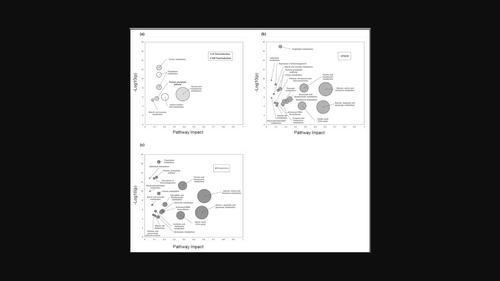当前位置:
X-MOL 学术
›
Physiological Reports
›
论文详情
Our official English website, www.x-mol.net, welcomes your feedback! (Note: you will need to create a separate account there.)
The neuroendocrine stress response compensates for suppression of insulin secretion by volatile anesthetic agents: An observational study
Physiological Reports Pub Date : 2023-02-17 , DOI: 10.14814/phy2.15603 William G Tharp 1 , Max W Breidenstein 1 , Alexander F Friend 1 , S Patrick Bender 1 , Daniel Raftery 2
Physiological Reports Pub Date : 2023-02-17 , DOI: 10.14814/phy2.15603 William G Tharp 1 , Max W Breidenstein 1 , Alexander F Friend 1 , S Patrick Bender 1 , Daniel Raftery 2
Affiliation

|
Alterations in perioperative metabolic function, particularly hyperglycemia, are associated with increased post-operative complications, even in patients without preexisting metabolic abnormalities. Anesthetic medications and the neuroendocrine stress response to surgery may both contribute to altered energy metabolism through impaired glucose and insulin homeostasis but the discrete pathways involved are unclear. Prior human studies, though informative, have been limited by analytic sensitivity or technique, preventing resolution of underlying mechanisms. We hypothesized that general anesthesia with a volatile agent would suppress basal insulin secretion without altering hepatic insulin extraction, and that surgical stress would promote hyperglycemia through gluconeogenesis, lipid oxidation, and insulin resistance. In order to address these hypotheses, we conducted an observational study of subjects undergoing multi-level lumbar surgery with an inhaled anesthetic agent. We measured circulating glucose, insulin, c-peptide, and cortisol frequently throughout the perioperative period and analyzed the circulating metabolome in a subset of these samples. We found volatile anesthetic agents suppress basal insulin secretion and uncouple glucose-stimulated insulin secretion. Following surgical stimulus, this inhibition disappeared and there was gluconeogenesis with selective amino acid metabolism. No robust evidence of lipid metabolism or insulin resistance was observed. These results show that volatile anesthetic agents suppress basal insulin secretion, which results in reduced glucose metabolism. The neuroendocrine stress response to surgery ameliorates the inhibitory effect of the volatile agent on insulin secretion and glucose metabolism, promoting catabolic gluconeogenesis. A better understanding of the complex metabolic interaction between anesthetic medications and surgical stress is needed to inform design of clinical pathways aimed at improving perioperative metabolic function.
中文翻译:

神经内分泌应激反应补偿挥发性麻醉剂对胰岛素分泌的抑制:一项观察性研究
围手术期代谢功能的改变,尤其是高血糖,与术后并发症的增加有关,即使是在没有预先存在代谢异常的患者中也是如此。麻醉药物和对手术的神经内分泌应激反应都可能通过葡萄糖和胰岛素稳态受损而导致能量代谢改变,但所涉及的离散途径尚不清楚。先前的人体研究虽然提供了丰富的信息,但受到分析敏感性或技术的限制,阻碍了潜在机制的解决。我们假设使用挥发性药物进行全身麻醉会在不改变肝脏胰岛素提取的情况下抑制基础胰岛素分泌,并且手术应激会通过糖异生、脂质氧化和胰岛素抵抗促进高血糖。为了解决这些假设,我们对接受吸入麻醉剂的多节段腰椎手术的受试者进行了一项观察性研究。我们在整个围手术期经常测量循环葡萄糖、胰岛素、c 肽和皮质醇,并分析了这些样本子集中的循环代谢组。我们发现挥发性麻醉剂会抑制基础胰岛素分泌并解除葡萄糖刺激的胰岛素分泌。手术刺激后,这种抑制作用消失,并且存在具有选择性氨基酸代谢的糖异生作用。没有观察到脂质代谢或胰岛素抵抗的有力证据。这些结果表明,挥发性麻醉剂会抑制基础胰岛素分泌,从而导致葡萄糖代谢降低。对手术的神经内分泌应激反应改善了挥发剂对胰岛素分泌和葡萄糖代谢的抑制作用,促进分解代谢糖异生。需要更好地了解麻醉药物和手术应激之间复杂的代谢相互作用,以便为旨在改善围手术期代谢功能的临床路径设计提供信息。
更新日期:2023-02-17
中文翻译:

神经内分泌应激反应补偿挥发性麻醉剂对胰岛素分泌的抑制:一项观察性研究
围手术期代谢功能的改变,尤其是高血糖,与术后并发症的增加有关,即使是在没有预先存在代谢异常的患者中也是如此。麻醉药物和对手术的神经内分泌应激反应都可能通过葡萄糖和胰岛素稳态受损而导致能量代谢改变,但所涉及的离散途径尚不清楚。先前的人体研究虽然提供了丰富的信息,但受到分析敏感性或技术的限制,阻碍了潜在机制的解决。我们假设使用挥发性药物进行全身麻醉会在不改变肝脏胰岛素提取的情况下抑制基础胰岛素分泌,并且手术应激会通过糖异生、脂质氧化和胰岛素抵抗促进高血糖。为了解决这些假设,我们对接受吸入麻醉剂的多节段腰椎手术的受试者进行了一项观察性研究。我们在整个围手术期经常测量循环葡萄糖、胰岛素、c 肽和皮质醇,并分析了这些样本子集中的循环代谢组。我们发现挥发性麻醉剂会抑制基础胰岛素分泌并解除葡萄糖刺激的胰岛素分泌。手术刺激后,这种抑制作用消失,并且存在具有选择性氨基酸代谢的糖异生作用。没有观察到脂质代谢或胰岛素抵抗的有力证据。这些结果表明,挥发性麻醉剂会抑制基础胰岛素分泌,从而导致葡萄糖代谢降低。对手术的神经内分泌应激反应改善了挥发剂对胰岛素分泌和葡萄糖代谢的抑制作用,促进分解代谢糖异生。需要更好地了解麻醉药物和手术应激之间复杂的代谢相互作用,以便为旨在改善围手术期代谢功能的临床路径设计提供信息。














































 京公网安备 11010802027423号
京公网安备 11010802027423号